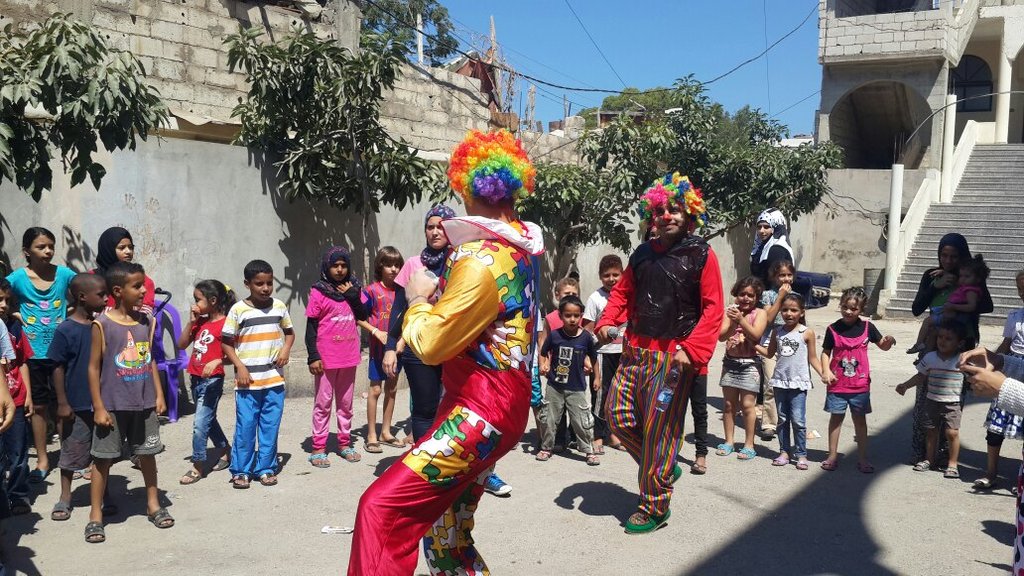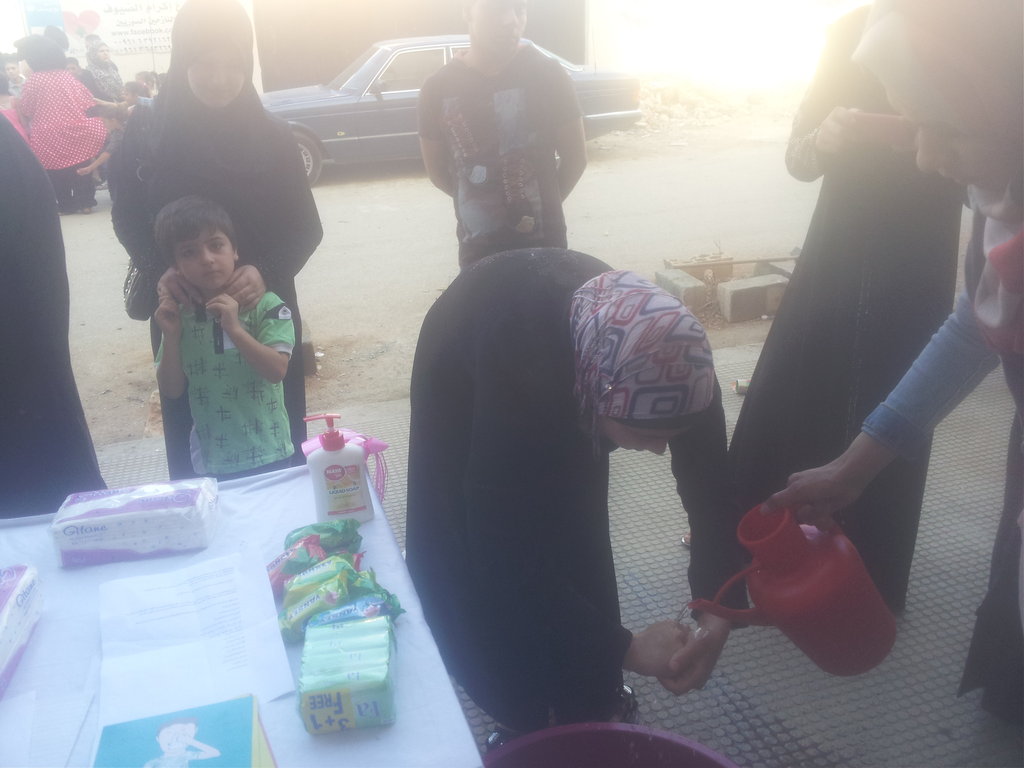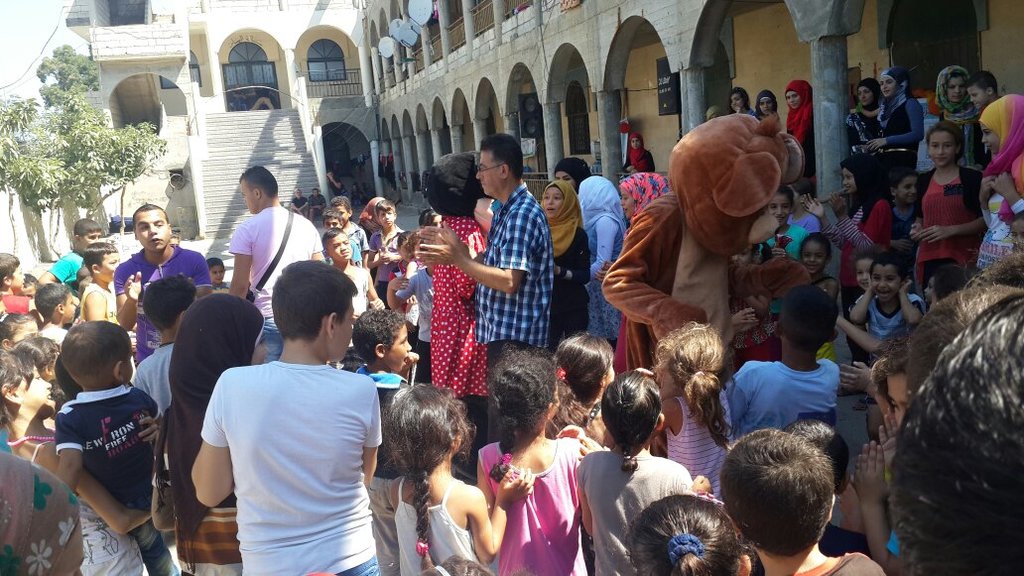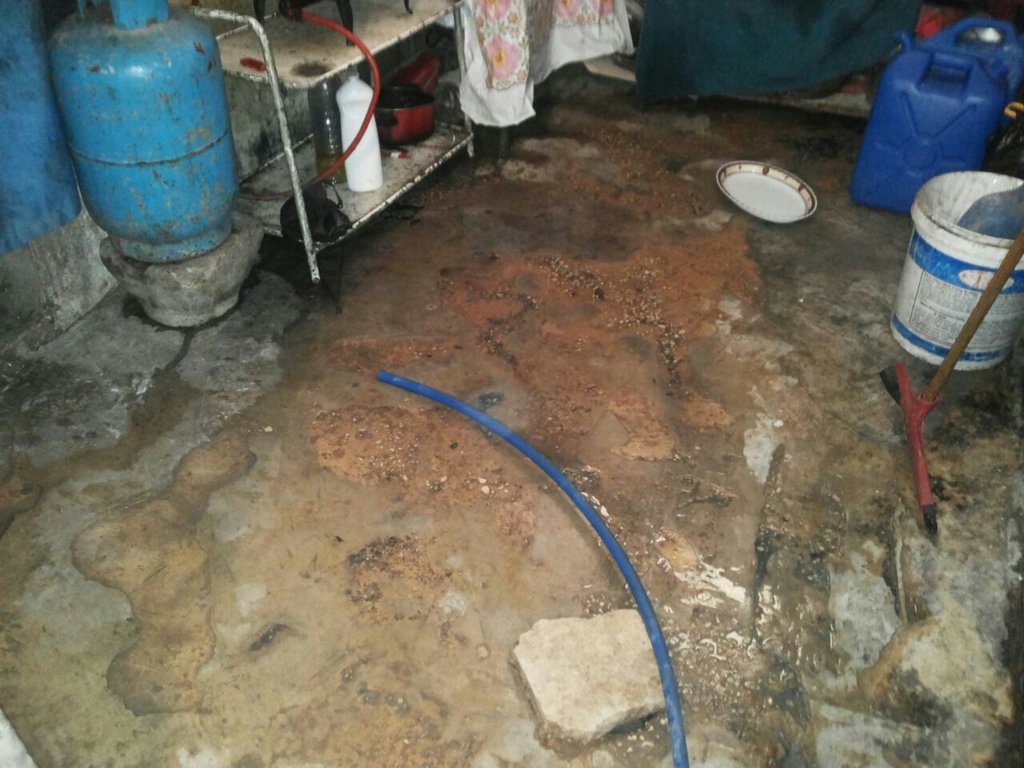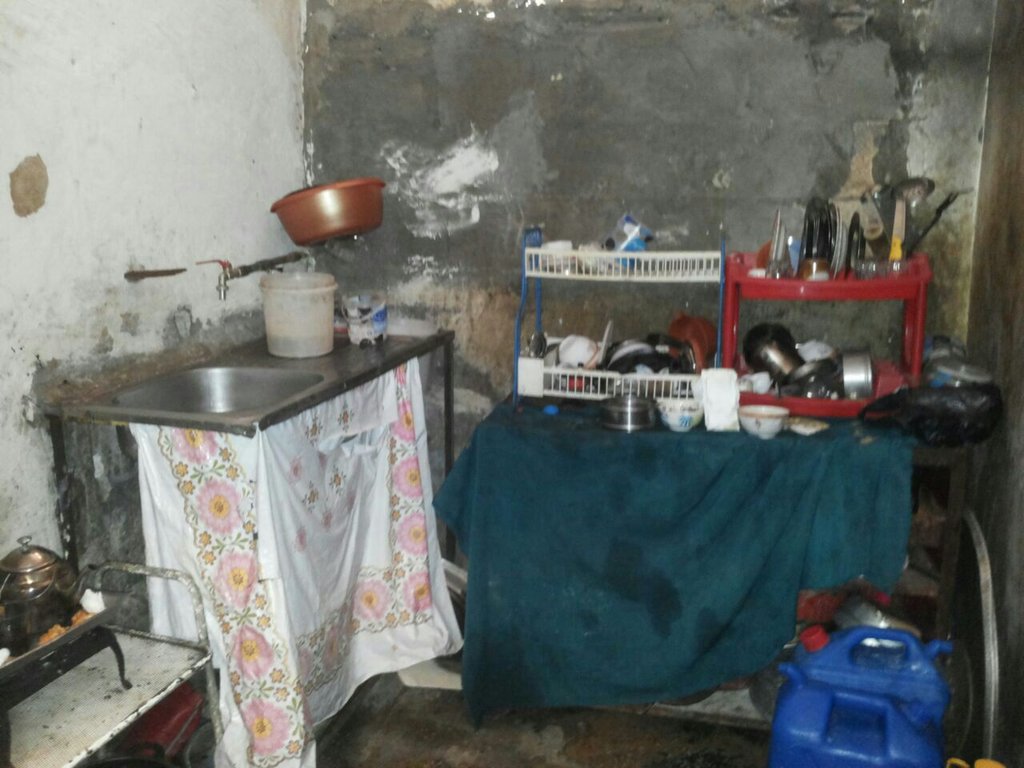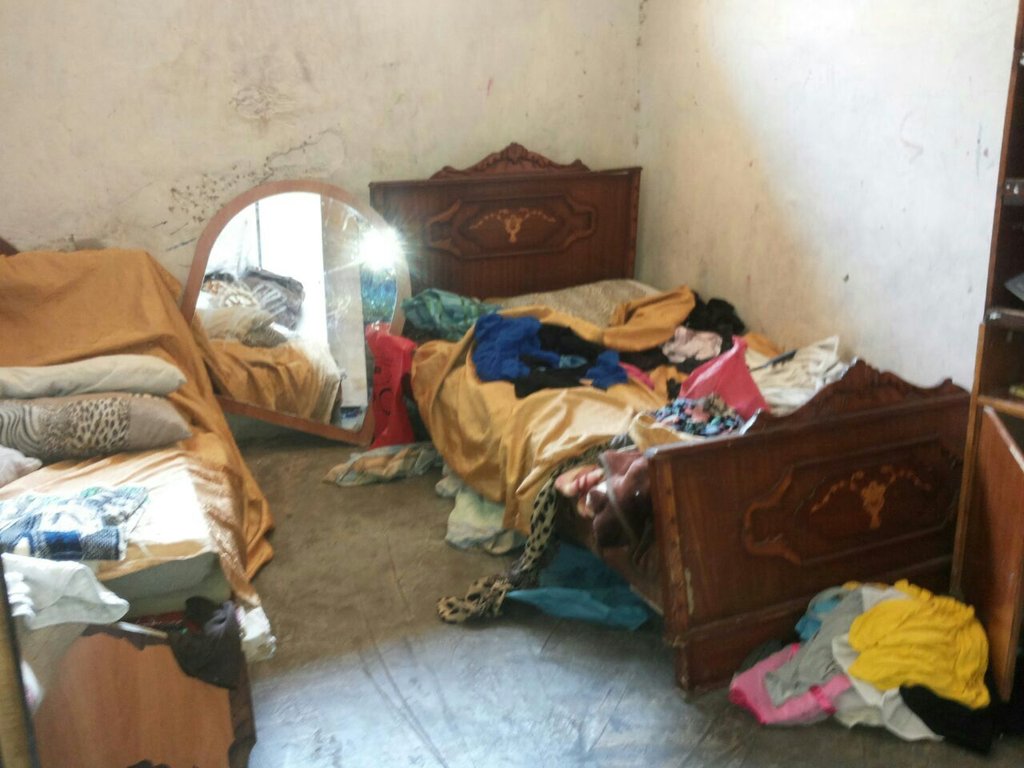By Hiba Hamzi | Program Coordinator
Background during and after the implementation of the project: Syrian Refugees (SRS) and Palestinian refugees from Syria (PRS) are at risk of outbreaks of infectious diseases due to the lack of necessary health care andthe lack of accommodationsmeeting the minimum living standards, at the time that many families are accommodating houses or stores or even tents, each with more than three families. In addition to the social problems arising from the residency of these families with each other, these people suffer another kind of problems, that is adapting with their surroundings which is groaning under the weight of poverty, the materialistic exploitation, unreasonablehigh prices, and the high rent allowances of apartments and stores, especially in the camps, where hundreds of families are residing in the newly created rooms that are leasedfor fictional allowances.
Alongside, with the decline in the level of health services, the stop ofprovision of food aid, and as the NGOs and INGOs are not providing rent subsidies; these conditions led to the spread of scabies and lice disease among the displaced and hosting families due to the information shared by UNRWA clinics in the camps.
The news about the spread of infectious diseases, such as scabies, lice, rash and smallpox among the Palestinian & Syrian Displaced community raised a wave of panic among the public the last summer, and now these days it started to be raised again due to the summer season. Despite the calm tone of the Ministry of Health and its announcements that assure the situation is not so serious and this infection does not require all this panic, still the conflicting information and the loss prevailing the civil society confirms that what happening requires a quick action to limit the spread of the disease in this frightening way.
On the other side, another Ministry of Health announcements point out that there is a steady increase in the number of infected persons among PRS, SRS and the humanitarian workers call for more efforts to address the problem.
Naba’a Achievements in the last three months;
During the last three months, Naba’a worked on promoting the hygienic practices for the PRS and SRS community in the three Palestinian refugee camps and 12 un-official gatherings. This is achieved through the followings;
Conducting four open days in Palestinian refugee camps and gatherings (Ein El Helweh, Naher El Bared, Shabriha gathering, Al Sekki gathering) from North to South Lebanon reaching around 3500 (Children, youth, women, adolescents, men, etc…). The main messages highlighted in the open days was Self Hygiene, household hygiene, Environment and food clean and safety, domestic accident, etc…
During the open day, six corners were established each corner talking and discussing one issue about food, hygiene, environment, etc… In addition, there was a dirty clown show who displayed the wrong behaviours and asking the children to correct it, this aims to attract the children to understand more about self hygiene, how to practice it and how to protect themselves from diseases.
Moreover, during the last three months around 100 raising awareness sessions and home stations were conducted inside the Palestinian refugee camps and unofficial gatherings, the aim of these home stations and sessions is to raising awareness the local community about the importance of self hygiene, home accidents, environmental hygiene, reproductive health and summer diseases particularly for the families who are displaced and living in collective centers.
A Case Study of one of family who is in need of assistance;
Jamal Ya’akoub Family:
Jamal Ya’akoub is Palestinian refugee from Ghaza living in Ein el helweh camp - Lebanon. Jamal married from Palestinian woman and have 10 children “4 girls and 6 boys”. The smallest one aged 10 years old and the elder one aged 23 years old.
Jamal doesn’t have ration card knowing that he’s from Ghaza and is not benefiting from UNRWA services in maintaining the houses. The situation of their house is very bad according to UNRWA standards.
Economical situation:
The family is living from the father salary “500,000 L.L.” every two or three months knowing he is a worker at a Local organization”. They are living in old house and is not suitable for living consists of two rooms and one bathroom not suitable for use. However, the house’s rooms don’t have doors so the family lack privacy in their house, knowing that the children “girls and boys” are sleeping in one room and the parents are sleeping in the living room. The kitchen is in bad situation and worsens by the water crisis in the camp. The France organization maintains their house and some of their relatives that displaced from Syria helped in maintaining the kitchen. The house lack hygiene, they don’t care for their hygiene even if the house sends foul odors, the clothes always thrown in the ground and the bathroom is too bad you can’t even walk around it from the bad smells.
Health situation:
The father is suffering from chronic disease in his eye from an accident that made him unable to work and improve the economical situation of the family. In addition to that the father has problems inside the camp so he’s not able to move inside or outside the camp in comfortable way.
The mother is suffering from bad psychological situation; she’s always escaping from the house for months. She’s treating in specialist psychologist but she’s taking expensive medicines and the family can’t pay for her for that reason the situation is getting worse.
The eldest boy that aged 23 years old is suffering from disability in his leg by 75% because of the unstable security situation in the camp.
Psychological situation:
As a result of the social, economical and health situation of the family, they are all suffering from bad psychological situations “Tension, anxiety, and violence”. The father is always violating the children. The father see that the organizations are abusing him, always visiting him and promise to help the family and they don’t come back because he don’t have ration card.
Family situation during this period:
Intervention:
Naba’a team is following up the children through regular home visits and they are now participating in the supportive lessons, recreational activities and awareness session. In addition to that, one of the girls engaged in hair dressing course in vocational training center.
Thus, this family is in real need of all the provided assistance, with which we need to continue, particularly for rehabilitation and winterization.
Project reports on GlobalGiving are posted directly to globalgiving.org by Project Leaders as they are completed, generally every 3-4 months. To protect the integrity of these documents, GlobalGiving does not alter them; therefore you may find some language or formatting issues.
If you donate to this project or have donated to this project, you can receive an email when this project posts a report. You can also subscribe for reports without donating.
Support this important cause by creating a personalized fundraising page.
Start a Fundraiser